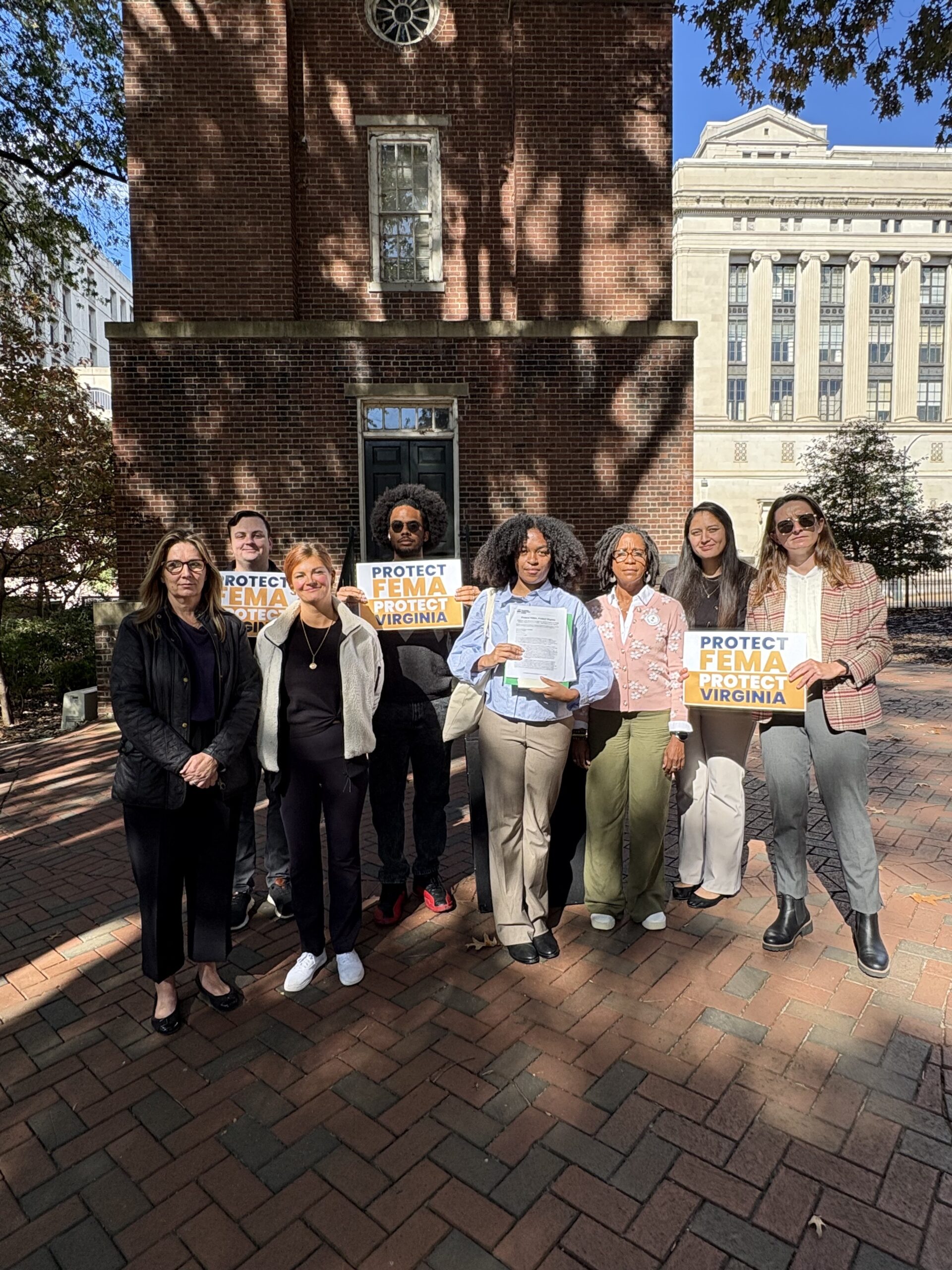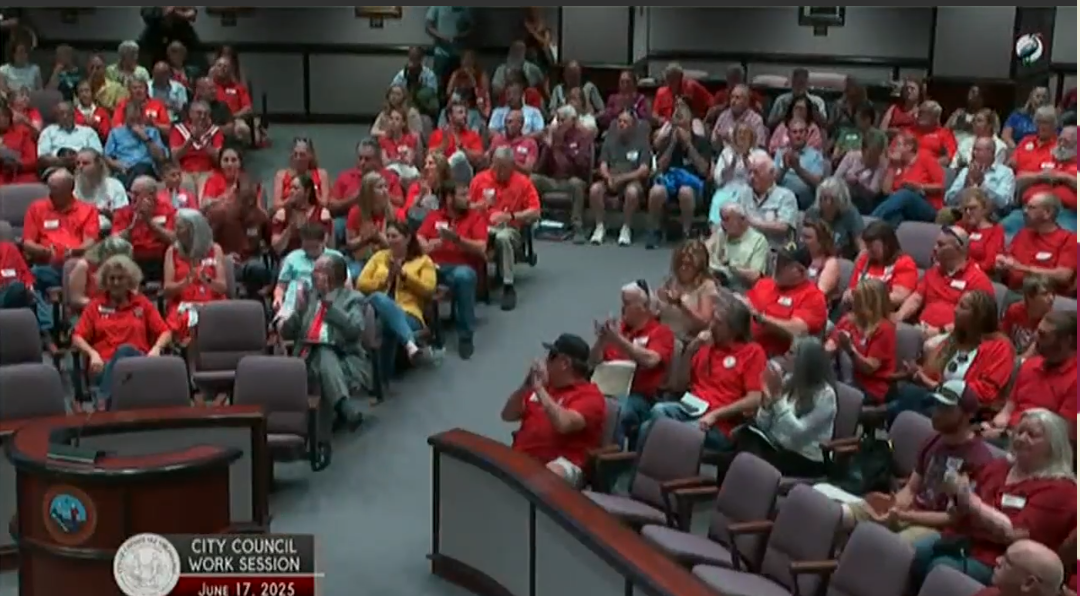Advocates urge strengthening, not eroding, FEMA disaster relief programs as climate disasters escalate and federal aid hangs in the balance.
RICHMOND, VA – Richmond city councilmembers and climate organizations held a press conference today to urge Governor Glenn Youngkin to use his seat on the FEMA Review Council to strengthen the Federal Emergency Management Agency (FEMA), not dismantle it. This effort comes amid alarming signs that FEMA is losing key staff, combined with significant disaster funding cuts, which are severely weakening the agency’s capacity to respond to disasters. The Trump Administration’s plan to shift disaster relief costs to states risks imposing significant financial burdens on Virginia residents and taxpayers.
“Our communities depend on FEMA to be a reliable partner when disaster strikes,” said Richmond City Councilmember Stephanie Lynch. “Strengthening FEMA isn’t about politics — it’s about making sure every Virginian has the support they need to recover, rebuild, and become more resilient in the face of a changing climate.”
“Americans must be able to count on their federal government for aid in times of crisis, and to be partners in preventing their severity,” said Richmond City Councilmember Katherine Jordan. “Emergency management and prevention are bedrock responsibilities of government. I join Virginians from across the Commonwealth asking our Governor to ensure we have the strongest FEMA possible – both in ability to respond to disasters – and through equipping communities with critical dollars to prevent or mitigate events before they happen.”
“When federal support is ripped away, local governments are left holding the bag, and the overwhelming burden almost always falls on the people who can least afford it. But, Governor Younkin can change that,” said Kim Sudderth, Hampton Roads Environmental Justice Advocate.
Speakers highlighted the growing risks that extreme weather disasters pose to Virginia and how dismantling FEMA would jeopardize critical disaster relief as climate disasters grow in frequency and severity. Following the press conference, advocates delivered a petition signed by hundreds of Virginians demanding action to protect federal disaster programs.
“The climate crisis isn’t a far-off, distant future; it is our new reality that Virginians are experiencing through unprecedented extreme weather that overwhelms our critical infrastructure,” said Gabby Walton, Federal Campaigns Associate for the Chesapeake Climate Action Network. “Our local disaster response depends on FEMA’s support, and the federal government’s moves to suspend critical FEMA staff and funding is unacceptable. As the FEMA Review Council considers overhauling and possibly dismantling FEMA altogether this hurricane season, I urge Governor Youngkin to use his influence to improve the agency, not dissolve it.”
“Our elected leaders should not be playing politics when it comes to disaster recovery; they shouldn’t pick winners or losers after a devastating flood, hurricane, wildfire, or other natural disaster,” said Catherine Setaro, Hampton Roads Field Manager at Virginia League of Conservation Voters. “Governor Youngkin needs to use his official capacity on FEMA’s Review Council to strengthen this agency while he has the chance.”
Recent proposals from the Trump administration and members of the FEMA Review Council risk dismantling FEMA and cutting disaster relief funding. Since January, the Chesapeake Climate Action Network (CCAN) and 20 supporting Virginia-based organizations have highlighted the life-saving importance of federal disaster aid by submitting an organizational letter to Governor Youngkin. Virginia’s reliance on FEMA for recovery in major storms highlights the potential dangers if federal support is eliminated.
Watch the live stream recording on our Instagram account HERE.
###
Chesapeake Climate Action Network is the first grassroots organization dedicated exclusively to raising awareness about the impacts and solutions associated with global warming in the Chesapeake Bay region. Founded in 2002, CCAN has been at the center of the fight for clean energy and wise climate policy in Maryland, Virginia, Washington, DC and beyond.



